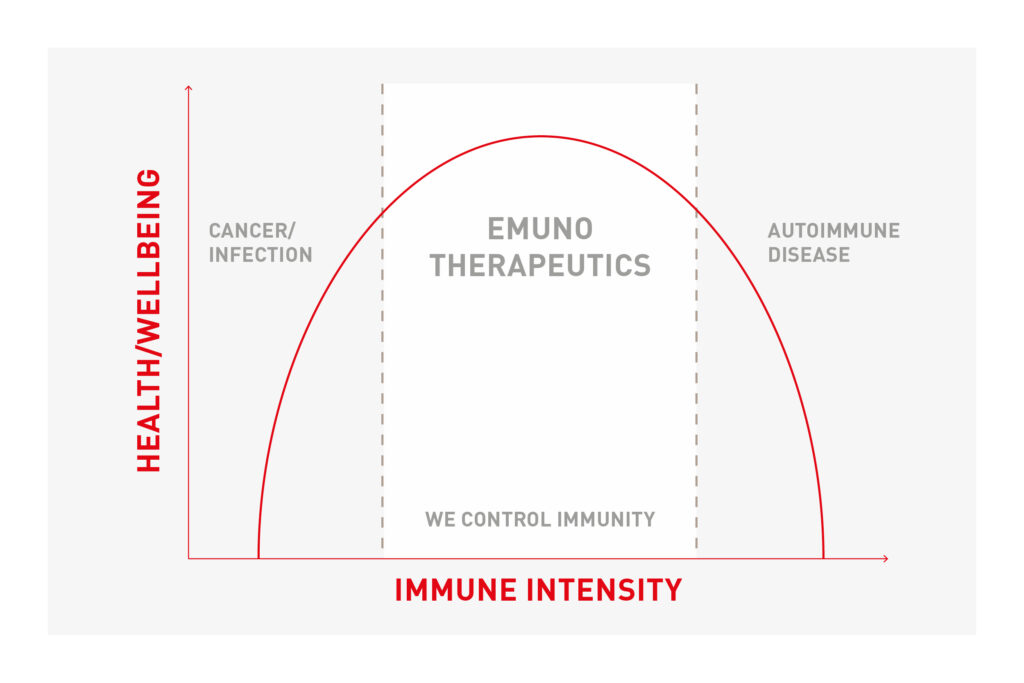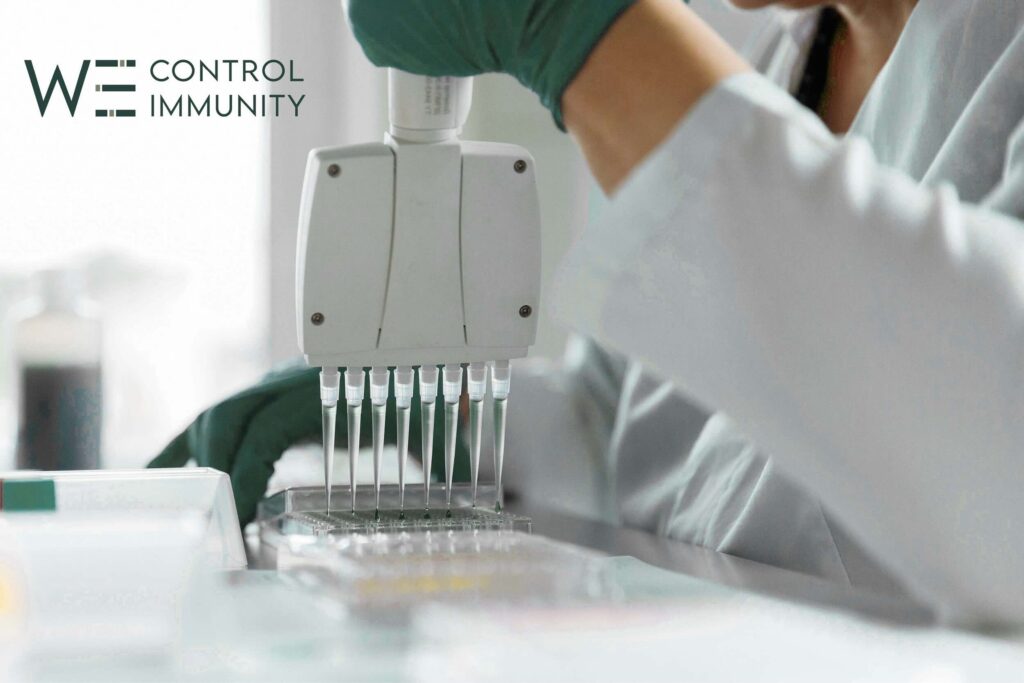
Curiosity, Courage, and Clinical Impact
From early science competitions to pioneering immunotherapies
Written by
From a 14-year-old student competing in science contests to leading EMUNO Therapeutics, Dr. Emilia Neuwirt has turned curiosity into therapies that could transform patient care. Emilia, Co-Founder and CEO of EMUNO Therapeutics GmbH, has travelled a path from early student science competitions to becoming a postdoctoral scientist, licensed pharmacist, and entrepreneur. With a background in molecular pharmacology and immunology, she is now dedicated to developing innovative immunotherapies. In this interview, Emilia reflects on her journey from academia to entrepreneurship, the challenges of translating research into innovation, and her vision for bridging science with business.
Emilia, can you share how your journey in science began?
My passion for science started surprisingly early. At 14, I participated in Jugend forscht, Germany’s national student science competition. I loved the hands-on experience of developing a project from scratch. Initially, I imagined studying law, but a teacher recognised my aptitude for science and encouraged me to explore it further. That guidance shaped my curiosity and set me on a path toward a career in pharmacy and biomedical research. Those early experiences taught me that scientific exploration is not just a subject at school — it’s a way to engage with the world and ask meaningful questions.
What drew you specifically to pharmacy and immunology?
Pharmacy appealed to me because it combines chemistry, biology, and medicine. After completing my studies in Freiburg, I went to ETH Zurich for a postgraduate diploma in pharmacology. It was during that time when I first became fascinated by the immune system: how it maintains balance and how its disruption can lead to disease. Later, during my PhD in Freiburg with Professor Olaf Groß, I studied small molecules and macrophage biology. This combination of scientific depth and curiosity about human health laid the foundation for my later entrepreneurial path.
Why focus on immunology and small molecules?
The immune system is central to human health. When it’s out of balance, disease follows. Therapies that can restore or fine-tune immune responses have enormous potential. Small molecules are particularly versatile — they can precisely target pathways, offering both adaptability and impact. For me, the combination of scientific precision and therapeutic promise makes this field endlessly compelling.
How did your experience in community pharmacies shape your perspective?
Working in pharmacies reminded me that science is ultimately about people. Patients aren’t thinking about mechanisms or molecules; they care about how treatments affect their daily lives. That real-world perspective keeps EMUNO grounded — our aim is to develop therapies that truly make a difference, not just in theory but in practice.
What inspired your move from research to entrepreneurship?
It was a gradual process rather than a single moment. Programs like YES and design thinking workshops showed me the value of viewing research through the lens of patients and partners. I realised that our discoveries could be translated into therapies with real-world impact. Together with Olaf Groß and our co-founder Andreas Vogt, we founded EMUNO to make that possibility a reality.

How challenging was the transition from academia to a start-up, and how did your approach to problem-solving evolve?
The biggest adjustment was the lack of a roadmap. In academia, structures and guidance are always present. In a start-up, every day brings new, sometimes unpredictable challenges. Decisions must be made with incomplete information, and learning often happens by trial and error. As a researcher, I was used to exploring questions in depth. In a start-up, clarity and pragmatism became essential. I discovered a love for combining scientific work with strategic decision-making and creative problem-solving.
Which new skills surprised you the most as a founder?
Public speaking and pitching came naturally thanks to my experience in science slams. What surprised me was how much I enjoy business planning and administrative management. The blend of creative, strategic, and operational responsibilities makes every day different and keeps the work incredibly engaging.
How vital was networking for EMUNO’s early success?
Absolutely crucial. Our CFO Andreas joined through contacts at an event, and many connections helped us access advisors, specialists, and investors. Building and maintaining a strong network has been essential to our growth and continues to be a priority.
How has EMUNO’s team evolved, and does research still guide your development?
We started with three co-founders, each bringing complementary skills, and quickly expanded to six. Diversity in expertise and perspective is a core strength. We also collaborate extensively with external partners, which allows us to operate at a high level despite being a small company. Interdisciplinary teamwork is central to how we work.
Research remains at the heart of EMUNO’s work. Even as a start-up, we rapidly test ideas, pivot strategies, and integrate new findings directly into product development. Everything is aligned with tangible therapeutic goals, ensuring that our scientific insights translate into real-world solutions.

How did you translate complex science into a business model?
It was an iterative, collaborative process. Combining scientific expertise with business insight, we refined our strategy continuously. Feedback from diverse sources ensured that our scientific knowledge could be transformed into solutions with real-world impact.
How important was public funding for EMUNO?
Public funding was critical, especially in the early stages. Even with strong data, we weren’t ready for investors. The European Innovation Council Transition programme allowed us to mature our technology and position ourselves for private investment, accelerating our progress.
What is EMUNO’s long-term vision, and where do you see the company in 2–3 years?
We aim to lead in early-stage drug development for immunomodulation while remaining small and agile, close to research. We act as a bridge between science and industry to maximise patient benefit. Over the next 2–3 years, our focus will remain on discovery and pre-clinical research. As candidates mature, larger pharmaceutical partners will take them into later-stage development. We may conduct early trials ourselves if needed, but our core strength remains early-stage innovation.

What advice do you have for scientists considering entrepreneurship?
Speak with as many people as possible — mentors, entrepreneurs, investors, and peers. Build your network early. Take part in workshops and accelerator programmes. Most importantly, don’t wait for the ‘perfect’ moment. Start, learn along the way, and embrace the journey. Founding a company is a marathon, not a sprint — celebrate progress, remain curious, and enjoy the process.
Any final reflections on your journey?
Entrepreneurship is challenging and can be stressful, but it’s deeply rewarding. I encourage others to embrace both the opportunities and the learning that each stage brings. I’m genuinely excited for the future and grateful for the growth this journey continues to offer.

What happens next?
Check out our event calendar for upcoming workshops. Stay tuned for more updates, opportunities, and success stories!
Connect with Emilia Neuwirt via LinkedIn!
Interviewer & Editor, Design: Bianca Cramer






